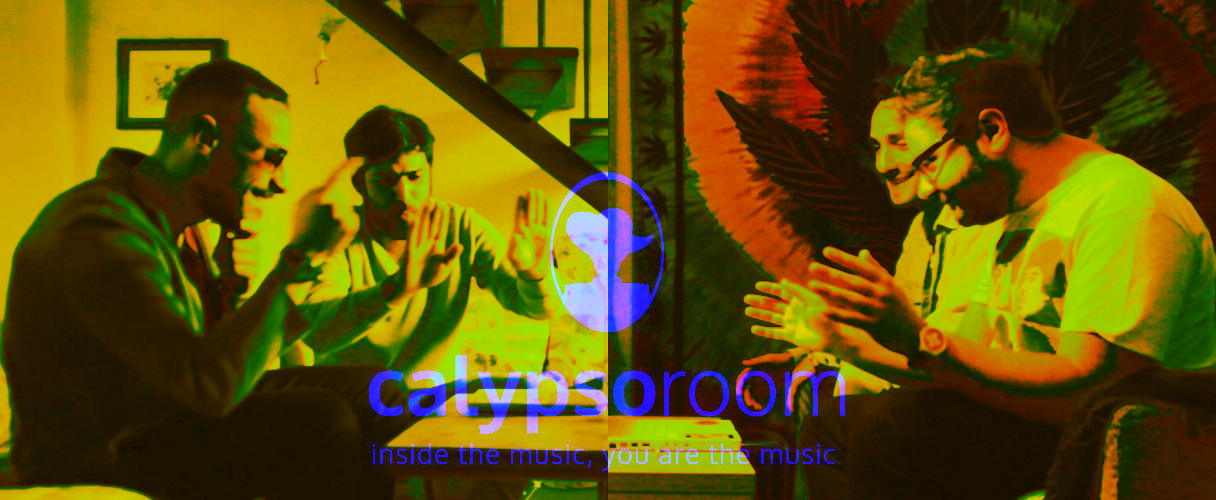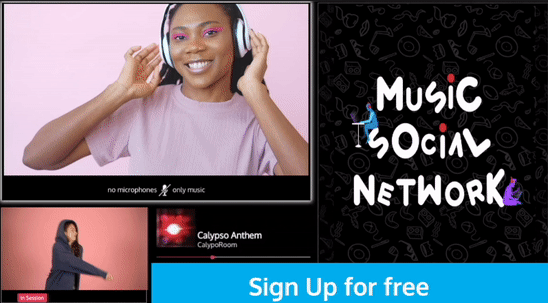Revolution of music genres through social networks

Table of content
Revolution of music genres through social networks - Introduction
Welcome, music enthusiast, to a thrilling journey through time, a journey that explores the fascinating evolution of music, the role of technology, and the power of social networks in shaping what we hear today.
Imagine the earliest days of music, when human voices and handmade instruments echoed in caves or against stone walls.
Fast forward a few thousand years, and we have seen an astonishing transformation.
The variety, quality, and accessibility of music are at an all-time high, thanks to the power of technology and social networks.
When we speak of technology, it's essential to realize that it's more than a mere tool. Technology has indeed revolutionized the way we create, share, and consume music.
From vinyl records to cassettes, CDs, and now streaming platforms, each technological leap has made music more accessible to us, wherever we are.
More than just platforms for communication, social networks have quickly become vibrant spaces of music discovery and sharing.
They have transformed the way we experience music, breaking it free from the confines of personal listening.
Now, our favorite songs become a part of our online identity, something we share with our friends, followers, and the world. In a way, our playlists have become our musical fingerprints.
Stay tuned for a deep dive into how the birth of new music genres has been shaped in the digital age.

KEY TAKEAWAYS
Technology and social networks have revolutionized music: They have enhanced music accessibility and allowed artists to share their work globally, leading to a global music industry.
Social networks are vibrant spaces for music discovery: They have transformed the way we experience music, making it a part of our online identity and leading to the birth of new music genres.
Digital age has led to an explosion of new music genres: With platforms like YouTube, SoundCloud, and TikTok, ordinary individuals have the chance to reach stardom, illustrating the democratization of the music industry.
Social networks serve as primary music distribution channels: Artists, especially independent ones, use these platforms to share their music with the world, leading to viral trends that influence music popularity.
CalypsoRoom is revolutionizing music listening: By allowing people to listen to music together, live, it is bringing back the social aspect of music and playing a significant role in the evolution of new music genres.
Music is a powerful tool for identity expression on social networks: Sharing music preferences can express individual identities and foster a sense of community and belonging, playing a pivotal role in personal and group identity formation.
The birth of music genres in the digital age
As our journey continues, we land in the digital age, an era that has given rise to an unprecedented explosion of new music genres.
In this vast universe of sounds, melodies, and rhythms, you're no longer confined to what your local radio station decides to play.

In 2023 has been estimated that nearly 616.2 million people listen to music online.
Just as a painter mixes colors to create a unique hue, artists today are blending sounds, cultures, and technologies to create entirely new genres.
But how does this happen, you ask? It's all about sharing and discovery. Today's technology allows musicians to share their creations with the world, and social networks have become their stage.
It's not just the musicians; listeners too have a part to play. By sharing, liking, and commenting, they contribute to the popularity and growth of these new genres.
Let's take a closer look at some of these newborn genres.
Ever heard of 'Vaporwave' or 'Chillhop'? These genres were born and nurtured in the vast expanse of the Internet. They thrived in the online communities that embraced and popularized them.
Likewise, established genres such as K-Pop have exploded in popularity worldwide, driven by devoted fan communities on social media.
And it's not just the genres; the Internet and social networks have been instrumental in the rise of many new artists.
Platforms like YouTube, Soundcloud, and TikTok have given birth to music stars who started as ordinary people sharing their music from their bedrooms.
If you're interested in digging deeper into this fascinating world, these articles, one on the impact of music social networks and another on artist discovery through music social networks, provide a wealth of information.
Social networks as music dissemination platforms
In the past, think of how music found its way to you. Maybe it was a catchy tune on the radio or a track from a newly bought album.
But today, chances are you discovered your latest earworm while scrolling through your social media feed. This shift isn't just a coincidence; it's a revolution led by artists and fueled by social networks.

They don't have to wait for record deals or radio airtime to share their music with the world. Instead, they upload their melodies directly to platforms like YouTube, SoundCloud, or TikTok, reaching a global audience in an instant.
In the second quarter of 2022, it is estimated that there will be 616.2 million music streaming subscribers worldwide.
The magic of social networks doesn't stop there; it's also about the way they promote music. Take, for instance, viral challenges and memes.
But that's exactly what happened with tracks like "Old Town Road" or "Blinding Lights".
As people participated in these challenges or shared these memes, the associated songs gained immense popularity, proving yet again the power of social networks in shaping music trends.
A particularly interesting phenomenon is the impact on album sales. Contrary to what some might think, the rise of music on social networks hasn't sounded the death knell for album sales.
Instead, artists have found clever ways to link their social media popularity to tangible sales.
The revolution is here, and it's pulsating to the rhythm of billions of shared tracks, viral challenges, and fan memes.
CalypsoRoom: a social revolution in music listening
As we journey further into the interconnected world of music and social networks, let's make a stop at an exciting new destination: CalypsoRoom.
This platform is a shining example of innovation, carving its own unique path by letting people listen to music together, live, and via webcam.
Imagine a global, real-time listening party where you can share your favorite tunes, discover new music, and bond with people over shared music tastes - that's CalypsoRoom in a nutshell.
While streaming music is often a solitary activity, CalypsoRoom brings back the social essence of music listening.
In the old days, music was a communal experience, shared around campfires or living rooms.
As you tune into a track with others, you can discuss the lyrics, the melody, or the artist, fostering a sense of community that transcends geographical boundaries.
What's more, CalypsoRoom is not just building bridges between music lovers; it's also making waves in the world of new music genres.
In essence, CalypsoRoom is showing us the way forward, a way where technology and human connection blend seamlessly to create a musical experience like no other.
It's engaging users in innovative ways, and these user engagement strategies are worth exploring.

Music genres and identity formation on social networks
Now, let's change our tune a little and delve into the relationship between music genres and identity formation on social networks.
Today, in our digitized world, music genres are playing an even more significant role in shaping who we are, both as individuals and communities, and a lot of this transformation is happening right on our social networks.
As humans, we've always sought ways to express our unique personalities, to stand out in the crowd, and what better way to do that than through music?
When we align ourselves with a particular music genre, we're not just saying, "Hey, I like this type of music." We're sharing a part of our identity, a facet of our individuality that goes beyond the surface.

And on social networks, where we interact with diverse individuals from across the globe, sharing our music preferences can serve as an expression of our persona.
It brings people together, sparking connections based on shared tastes and values. It's no different on social networks.
When individuals share their favorite tracks or artists, they're inviting others to join in, to be a part of their musical world.
This shared love for a genre can foster a sense of community and belonging, providing a common ground for strangers to become friends.
So, the next time you share a song on your profile, remember, you're not just sharing music; you're sharing a piece of your identity and potentially forging meaningful connections along the way. Let the music play on!
Future trends and predictions
As our musical journey comes to its final cadence, let's fast-forward to the future and explore the emerging trends and predictions that could shape the music industry in the digital age.

One of the most significant trends currently shaping the music industry is the integration of artificial intelligence (AI) into social media.
AI is playing an increasingly crucial role in understanding user preferences, curating personalized playlists, and even predicting what new music genres or sub-genres might resonate with listeners.
These machine learning algorithms are becoming more sophisticated, capable of understanding nuances in our musical tastes that we might not even be consciously aware of.
Additionally, as social media platforms have gained influence, they've become a powerful tool for shaping pop culture. And music, as an integral part of pop culture, is profoundly affected.
The trends we see in music, the genres that gain popularity, and even the styles of music videos are all influenced by the dynamics of social media.
By providing a space where people from around the world can come together to enjoy music in real-time, they're creating the potential for global listening parties.
In conclusion, the future of music genres in the era of social networks is exciting and brimming with potential.
As listeners, we are part of this evolution. So let's keep sharing, discovering, and, above all, enjoying the music!

Revolution of music genres through social networks - Conclusion
From providing a platform for the birth of new genres to acting as primary distribution channels for artists, social networks have significantly reshaped our music landscape.
We've seen how these platforms enable us to connect, share, and bond over our favorite tunes and how they've become a pivotal part of our musical identity.
Platforms like CalypsoRoom have taken this transformation a step further, fostering an environment where we can not only listen to the same music but do so together in real-time, regardless of geographical boundaries.
Now, imagine a future where you discover a new genre that resonates with you, not through an algorithm, but from a new friend across the globe in a CalypsoRoom listening session.
This is the potential of platforms like CalypsoRoom; they aren't just shaping the future of music, but they're inviting us all to be part of this exciting journey.
Feeling curious? Intrigued, maybe? We're extending an invitation for you to try out CalypsoRoom.
Plus, head over to our homepage blog where you can learn more about the world of music through social networks.
Our shared love for music is a symphony waiting to be played. And remember, every beat, rhythm, and melody starts with a single note. Let that note be yours. See you at CalypsoRoom!
Thanks for reading,
The CalypsoRoom Team
Frequently Asked Questions (FAQs)
How have social networks influenced the evolution of music genres?
Social networks have enabled artists to experiment with and blend styles, leading to the emergence of new, hybrid genres. They've also accelerated the genre evolution process through global exposure and immediate feedback from listeners.
What role does social media play in the development of new musical trends?
Social media is a breeding ground for new musical trends, providing a platform for artists to share innovative music and for fans to quickly adopt and amplify it. Viral challenges and user-generated content also significantly contribute to trend propagation.
How has the internet changed the way music genres are created and consumed?
The internet has democratized the creation and consumption of music, allowing artists to produce and distribute music independently and globally. For consumers, it has diversified access, enabling the discovery of a wide array of genres outside mainstream channels.
What are some examples of niche genres that have gained popularity through social media?
Niche genres like Vaporwave, Hyperpop, and Bedroom pop have gained popularity through social media. Platforms like TikTok and Soundcloud have been instrumental in promoting these lesser-known genres.
How do artists use social networks to promote their music and connect with fans?
Artists use social networks to share new releases, engage fans through live streams or chats, and build an online community. It's also a medium for storytelling, allowing artists to share their creative journey, thereby deepening fan connections.
Has social media affected the traditional music industry and record labels?
Yes, social media has disrupted traditional music industry dynamics by enabling artists to independently release music and directly engage with fans. This has challenged record labels' gatekeeping role, necessitating a shift in their strategies to leverage social media.
What are the advantages and disadvantages of the revolution of music genres through social networks?
Advantages include democratization of music creation and distribution, global exposure for artists, and diversified access for consumers. Disadvantages encompass issues like the potential oversaturation of content, increasing pressure on artists to maintain an online presence, and reduced control for traditional gatekeepers.
back
Written by CalypsoRoom Editorial Team
The CalypsoRoom Editorial Team is a skilled and diverse group of writers, researchers, and industry specialists who have access to Calypso's data and information in order to give you broad knowledge about the music industry as well as helpful advice to help you manage your music and dancing career.
Updated August 2023
Company number: 681223
James's Walk 31, Dublin, Ireland
contact@calypsoroom.com
+353 (89) 435 8928




